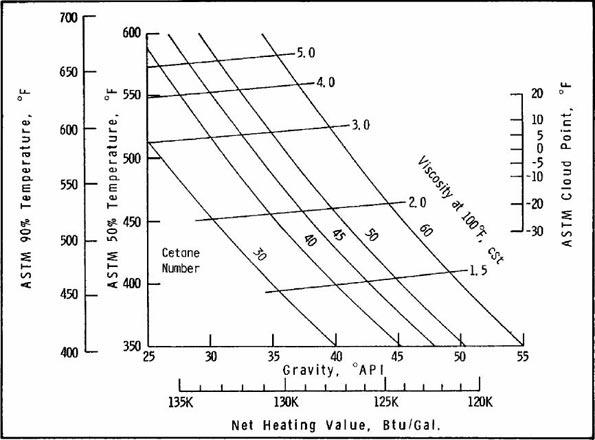Diesel Cetane Rating
I'm still seeing a large amount of people that want to continue adding cetane boosters to the 2 cycle oil this is not required. Today diesel fuel is approximately 43 - 47 cetane number. Please check over on the MSDS page.
|
Cummins Cetane Requirements for 1st, 2nd and 3rd Gen Trucks |
|
A Cetane rating of 40 is recommended at temperatures above 32 degrees. |
|
A Cetane rating of 45 is recommended at temperatures below 32 degrees. |
There is no benefit to using a higher cetane number fuel than is specified by the engine's manufacturer. The ASTM Standard Specification for Diesel Fuel Oils (D-975) states, "The cetane number requirements depend on engine design, size, nature of speed and load variations, and on starting and atmospheric conditions. Increase in cetane number over values actually required does not materially improve engine performance. Accordingly, the cetane number specified should be as low as possible to insure maximum fuel availability." This quote underscores the importance of matching engine cetane requirements with fuel cetane number!!!
Mopar's Notes: So adding cetane boosters are not going to improve the performance of the engine and/or fuel.
Cetane improvers modify combustion in the engine. They encourage early ignition of the fuel. They encourage premature combustion and excessive rate of pressure increase in the combustion cycle.
Mopar's Notes: Look at the materials they use in most cetane boosters. Mineral Spirits, Xylene, and Naptha none of these chemicals are even close to the diesel fuel family. They also have very low flash points like gasoline! Every one of them are used for degreasing and cleaning solvents.
Cetane Number is a measure of the ignition quality of a diesel fuel. It is often mistaken as a measure of fuel quality. Cetane number is actually a measure of a fuel's ignition delay. This is the time period between the start of injection and start of combustion (ignition) of the fuel. In a particular diesel engine, higher cetane fuels will have shorter ignition delay periods than lower cetane fuels.
Mopar's Notes: Cetane booster tend to advance the timing of ignition. Hence the ignition knock that you hear. The lower the cetane number the less ignition knock you'll hear. Also the flash point and the auto-ignition temps of the fuel is reduced greatly.
Cetane number should not be considered alone when evaluating diesel fuel quality. API gravity, BTU content, distillation range, sulfur content, stability and flash point are very important. In colder weather, cloud point and low temperature filter plugging point may be critical factors.
Mopar's Notes: All of the cetane boosters on the market tend to reduce the BTU content of the fuel. Hence it reduces the MPG and the HP/TQ numbers. Sulfur content is been reduced national to 520 HFRR (<15 PPM Sulfur) which mean less lubricity of the fuel. Cetane boosters tend to de-stabilize the auto-igntion point. Go back to my Chemical definition page and look at the auto-igniton temperatures of the different chemicals.

Here is a sample usage of the graph...
Dark green = #2 Summer Diesel
Light green = #2 Winterized Diesel

API Gravity
API gravity express the gravity or density of liquid petroleum products devised jointly by the American Petroleum Institute and the NIST - National Institute of Standards and Technology. The measuring scale is calibrated in terms of degrees API.
| Degree API | Specific Gravity | Weight | |
|---|---|---|---|
| (lb/US gal) | (kg/m3) | ||
| 8 | 1.014 | 8.448 | 1012 |
| 9 | 1.007 | 8.388 | 1005 |
| 10 | 1.000 | 8.328 | 998 |
| 15 | 0.966 | 8.044 | 964 |
| 20 | 0.934 | 7.778 | 932 |
| 25 | 0.904 | 7.529 | 902 |
| 30 | 0.876 | 7.296 | 874 |
| 35 | 0.850 | 7.076 | 848 |
| 40 | 0.825 | 6.870 | 823 |
| 45 | 0.802 | 6.675 | 800 |
| 50 | 0.780 | 6.490 | 778 |
| 55 | 0.759 | 6.316 | 757 |
As you can see as API Gravity goes up the BTU's go down because the fuel is less dense and contains less energy per unit.




There are no reviews to display.